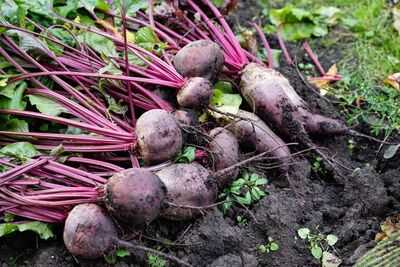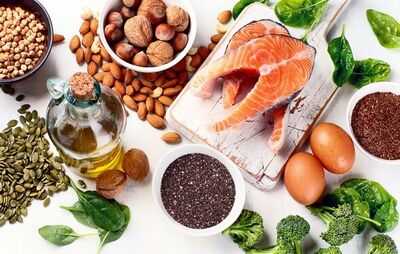
It turns out that getting a cold doesn't have to be a given this winter. And there's a lot more you can do than just wrapping up or downing fizzy vitamin C.
Nutritionist Kerry Torrens has shared six key foods that you should include in your diet this autumn and winter.

Writing for BBC Good Food, Kerry recommends everything from upping your oily fish consumption to eating more oats and barley. Apart from focusing on your diet, she shares additional tips, ranging from cleaning your phone to alternating between hot and cold showers.
It also turns out that it's not only yoghurt that's good for your gut and promotes the growth of healthy bacteria! Kerry also suggests an interesting alternative to garlic, which doesn't come with all the "unfavourable after effects".
And your morning porridge could be doing more than you think when it comes to keeping you cold-free this winter.
Kerry's six vital foods are as follows:

1. Sweet potatoes, butternut squash and beetroot
In addition to these three superfoods, it's essential to consume a variety of brightly coloured vegetables in general. Sweet potatoes, butternut squash, and beetroot are particularly high in beta-carotene, which our bodies convert to vitamin A.
It turns out that this vitamin isn't just essential for our eyes, but it is also crucial in keeping the mucosal linings in our nose and lungs strong enough to defend against infection.
Kerry also recommends orange and red fruits, such as oranges, mangoes, apricots, and melons, in particular.
Of course, fruits and vegetables are also rich in vitamin C, which is abundant in leafy, dark green vegetables such as chard and spinach, as well as peppers, broccoli, peas, kiwi, and citrus fruits.

2. Plenty of garlic and onion
Cooking with these is probably the easiest way to get these valuable alliums in your diet. Not only do onions and garlic contain special oils that have antimicrobial action, thereby likely helping to protect against bacterial and viral infections, but they also support gut health.
Kerry also suggests looking out for fermented black garlic, which has a rich balsamic flavour, is said to be twice as active as regular garlic, and doesn't come with the "unfavourable after effects".

3. Vitamin D
We often hear about the sun being an important source of this essential vitamin; however, it turns out that food can also be a valuable source, particularly in the winter months.
Kerry recommends consuming oily fish such as salmon and mackerel, eggs, and even mushrooms.
Vitamin D is essential for overall health, and deficiency is linked to a higher risk of infection. UK guidelines even suggest everyone consider taking a daily supplement of 10 micrograms during autumn and winter. This includes pregnant and breastfeeding women.
4. Oats and barley
These grains are rich in beta-glucans. Not only do they keep us full, but they also have an "immune modulatory effect". Essentially, they help increase the number and function of protective immune cells.
A chicken and barley risotto, or even an oat and chia porridge, are delicious ways to incorporate more into your diet.

Finally, healthy fats and probiotic foods are super valuable.
At least one portion of oily fish, such as mackerel, salmon, sardines, or trout, can give you a much-needed dose of omega-3 fats - they are essential for immune cell production. Even vegans and vegetarians can get omega-3 fatty acids from chia seeds, flaxseed, and walnuts.
As for probiotic foods, kefir, kimchi, and sauerkraut can make excellent additions to your diet. They help feed beneficial bacteria to the gut. Kerry recommends introducing these foods gradually if they are new to you, so that your digestive system has time to adjust.

Apart from food, Kerry also points out a couple of other good practices, such as washing your hands, cleaning your phone, staying active, getting enough sleep, and even taking a hot and cold shower.
Kerry shares that varying the temperature of a daily shower from hot to cold (about every 2-3 minutes) initiates an increase in white blood cell production.
You may also like

Rolex watch seized from Dubai based traveler at Delhi Airport, ruled 'Not Commercial' by High Court

Arsenal injury news latest amid Martin Odegaard worry and Declan Rice decision

Jaipur hospital fire: Amit Shah says necessary steps being taken

NEET UG Counseling 2025: NEET UG Round 3 counseling begins, lock your seat before this day

Thaman on cloud nine after Sachin Tendulkar tells him, 'You have great bat speed!'







